- Home
- Chris Ryan
Firefight Page 2
Firefight Read online
Page 2
The room to which he was taken was icy cold and contained nothing other than a hard metal chair firmly bolted to the ground and a large tinted window in one of the grey concrete walls. Abdul-Qahhar's handcuffs were removed, then he was thrown into the chair; a new set of sturdier cuffs strapped his arms down, before his legs were also fastened to his chair. Without a word, his captors left the room; he heard them lock the door behind him.
'Let me go!' he shouted. 'Please! Let me go! I'm just a student. You've got the wrong person.' He felt a tear ooze down his face as his voice echoed off the concrete walls.
No one answered his call.
It was freezing, and soon his teeth were chattering and his limbs shaking.
'Help me!' he shouted. And then, more feebly, in a voice that no one would have heard, even if they were listening: 'Help me. I'm so cold. Please, help me.'
Time passed. Minutes, hours, he didn't know. Abdul-Qahhar had never realised he could be so cold; all he could do was try to master it, to persuade himself that everything was going to be all right. 'You have done nothing wrong,'
he repeated to himself. 'Believe you have done nothing wrong and they will believe it too. It is a mistake.
'I have done nothing wrong.
'It is a mistake.'
He felt himself falling asleep, as though his body were shutting down.
'I have done nothing wrong.
'It is a mistake.'
The door burst open and two men entered. Abdul-Qahhar was relieved to see they were not carrying guns, but his relief was short-lived as one of them approached him, lifted his head by the chin and struck him hard across the face.
'You have information we need,' the man said. He had a thick mop of blonde hair and his accent was English.
'You are going to tell us everything.'
'I promise you,' Abdul-Qahhar begged, 'I do not know what you mean.'
The Englishman sneered at him and stepped aside to allow the second man to approach. He had a shiny, shaved head and a thin, aquiline nose and when he spoke it was with an American accent. 'You realise,' he said, in little more than a whisper, 'that you are not on US or British soil. The usual laws guaranteeing the safety of interrogated prisoners do not apply here.'
'Please -,' Abdul-Qahhar breathed.
The American stepped back and turned around so that he was facing away from the prisoner. 'I'm going to tell you one thing before we start,' he announced, a bit louder now. 'Not a threat, just a statement of fact.' He turned back to look at him. His face was serious and one eyebrow was raised. 'If you don't tell me what I want to know, I promise you, you're gonna think Guantánamo is a fucking vacation camp.'
Abdul-Qahhar stared fearfully back at him. 'Guantánamo?' he whispered. 'I'm not a terrorist.'
His interrogators didn't even blink. 'We'll be back when you're ready to speak,' the American said, and the two of them walked briskly out.
'I'm not a terrorist!' Abdul-Qahhar shouted after them.
'You just think that because of the colour of my skin. I'm not a terrorist!'
Yet again, his voice echoed around the empty concrete room. Abdul-Qahhar saw his breath billowing in the icy air, and he allowed his head to fall on to his chest, his body trembling even more violently than before.
He was awoken from his cold-induced stupor by water, a bucket of the stuff being thrown over him. His body temperature was so low that he couldn't tell how hot it really was, but to him it felt boiling. He screamed. Then he felt cold again.
The two men were back. They were standing in front of him.
'Please,' he shivered. 'Don't hurt me. Please.'
'You have information that we need,' the American insisted.
'I do not know what you are talking about. I promise you, I do not know. If I knew, I would tell you.'
'Does the name Faisal Ahmed mean anything to you?'
Abdul-Qahhar blinked. Now more than ever he needed to sound convincing.
'I have never heard that name in my entire life. I swear to you.' His wet clothes stuck to his skin.
The two men glanced at each other and something seemed to pass between them. Then the American looked over at the tinted dark window and nodded. 'Bring them in,' he called.
Moments later, the door opened again. Two more men walked in, both wearing blue overcoats. One of them was pushing a steel trolley, the other had a shiny metal drip stand. They stopped just by Abdul-Qahhar's chair, then both of them pulled on a pair of surgical gloves and wrapped cloth masks around their faces.
One of the masked men spoke. 'You sure you don't want to take him to the waterboarding room?'
'No need,' the American replied. 'We'll have this guy talking in no time.'
Abdul-Qahhar started to shake more violently as he watched one of them hand a plastic bag full of colourless liquid to the drip stand. It was the second man, however, who spoke to him.
'I'm going to insert a needle for the drip,' he said, his voice muffled slightly by the mask. 'It will hurt less if you do not struggle.'
Abdul-Qahhar felt his eyes bulging as the medic approached with a small needle. He started banging his restrained arms up and down against the chair, but it made no difference to the medic. He placed one gloved hand on the prisoner's arm and slowly slid the needle into one of the plump veins halfway up. Abdul-Qahhar gasped. The medic attached a long plastic tube to the pouch of liquid suspended from the drip stand, then turned and undid a small screw-top cap at the end of the needle hanging limply from Abdul-Qahhar's arm. A jet of blood spurted momentarily on to the concrete floor, but the medic soon had the drip tube attached. He turned to the interrogators. 'It's ready,' he said.
The American nodded, then looked blankly at Abdul- Qahhar. 'SP-17,' he said cryptically. 'Developed by the KGB.
The most effective truth serum we have at our disposal. Of course, if you still refuse to talk, then we have other means of extracting the information we want.'
He paused, as though waiting for that to sink in, then bent over and placed his face only inches away from his captive. 'It's up to you what method you choose, but let me tell you: by the time we've finished with you, you're gonna be singing like a fucking canary.'
Abdul-Qahhar closed his eyes.
It is a mistake.
I have done nothing wrong.
I have to believe that.
'Please,' he whispered. 'I have nothing to hide. If you would only tell me what this is all about, maybe I could be of some assistance to you—'
But the American had already stepped away and nodded at the medic, who turned a valve on the drip tube. Abdul-Qahhar felt something cold rush into the vein in his arm.
There was silence in the room. Abdul-Qahhar, feeling his teeth chattering again, clenched them together to stop it happening. After a minute or so, however, he released them. It suddenly seemed as though the room was not so cold. There was warmth, or maybe it was just him. The light didn't seem so harsh; it was softer, warmer. He glanced at the needle in his arm, then smiled as he understood what was happening. It was the drugs. The drugs were making him feel better. Maybe, he thought to himself, this was what Westerners felt like when they drank alcohol.
'I'm going to ask you again,' the interrogator's voice said. 'Does the name Faisal Ahmed mean anything to you?'
'It means nothing,' he replied, drowsily.
The American turned to the medic. 'Increase the dose,' he instructed. The medic turned the valve once more and again they waited. The warmth increased, and the wooziness.
He heard the American's voice. 'You have information about a terrorist strike.'
Abdul-Qahhar shook his head.
A pause. Lights seemed to dance around the room.
'You have information about a terrorist strike,' the American repeated, relentlessly.
Again he shook his head. He felt comfortable for the first time in hours.
A minute passed.
'You have information about a terrorist strike. You can tell me about it now
or you can tell me about it later. One way or another, though, you will tell me about it.'
And all of a sudden, Abdul-Qahhar smiled. There seemed to be no reason to hide it any more. No reason to pretend - to himself or anyone else - that he did not know what they were talking about. They were not going to hurt him.
'I'm going to ask you one more time. Does the name Faisal Ahmed mean anything to you?'
Of course it meant something to him. Faisal Ahmed - the men at the mosque had barely spoken of anyone else.
Faisal Ahmed, the warrior, they had called him.
Slowly, Abdul-Qahhar nodded his head.
The two men looked at each other and the American stepped back. Abdul-Qahhar noticed how the light seemed to reflect off his bald head. It transfixed him and he was only woken from his brief reverie when the Englishman spoke.
'Good,' he said. 'Well done, Abdul-Qahhar. You're doing the right thing. Now listen to me carefully. We know he's planning something big. All you have to do is tell me when and where. As soon as we have that information, you can go home.'
Abdul-Qahhar felt his head nodding. 'I would like to go home,' he said drowsily.
'Then tell me,' the Englishman insisted. 'When and where?'
He had a pleasant face, this man. When he smiled, there were creases on his cheek. Perhaps, once he had told them all he knew, they would let Abdul-Qahhar sleep.
And so he spoke in a clear voice, or as clear a voice as he could manage, like an eager child wanting to impress a teacher.
'Three weeks,' he announced. 'Three weeks. London.'
ONE
They were in the toy department. A long line of children snaked around the whole floor, waiting patiently. His daughter Anna looked longingly at the sign. 'Visit Father Christmas in his grotto,' it read in bright, festive colours. 'A present for every child.'
'Can I go and see Father Christmas, Daddy?' Anna asked. 'Please?' She tugged on his hand and looked up at him with those wide, appealing eyes. In other children, an expression like that could be put on, but not with Anna. She was six years old and wore her emotions plainly on her face. She was desperate to see Father Christmas and she so rarely asked for things. She was not brash or confident. It meant she was picked on at school sometimes, but she seemed to deal with it in her kind, sad little way.
He looked at the line of children. It would take an hour to reach Father Christmas, maybe more. A quick glance at his watch told him they didn't have time - the train back down to Hereford left in forty minutes, and they still had to struggle across London through the Saturday afternoon Christmas shoppers. He glanced at his wife, who shook her head imperceptibly.
He bent down to look at her face to face. 'I'm sorry, sweetheart,' he said. 'We haven't got enough time. Another day, hey?'
Anna's lip wobbled and she gazed at the floor. He knew what she was thinking, at least he thought he did. You always say that, Daddy. You always say you haven't got enough time. You always say another day.
But she didn't say anything. Obedient. Good as gold. Like always.
'Come on, love,' he said, doing his best to sound bright. He took her little hand in his and together the family of three wove their way through the crowds. Anna kept looking back and gazing at the line of luckier children, and each time she did he experienced that little surge of guilt that only a parent can feel.
He put his hand on Laura's shoulder. 'You go on,' he told her. 'I'll meet you downstairs, by the entrance.'
His wife looked at him with a mixture of suspicion and amusement. 'What are you doing, Will?'
He avoided the question. 'I'll meet you downstairs,' he said, before lightly touching Anna's hair. 'Stay close to Mum,' he warned.
Still smiling, Laura led Anna off down the ornate escalators. He watched her disappear before turning back into the toy department. He knew what he wanted. Anna's eyes had lingered over an enormous fluffy dog, as soft as snow with a big brown ribbon. It was expensive - even Anna could tell that, he thought. Certainly it was too expensive to be bought on a whim with a Regiment salary, but what the hell - he spent half his life in the most farflung shit holes of the world. Why shouldn't he treat his little girl now and then? He grabbed the toy and headed to a till.
As he handed over his credit card he heard the explosion.
There was a momentary silence all around him, and then everyone started to panic. The line of children dissolved into a mass of worried faces, and from the corner of his eye he saw two security guards rushing towards the escalators. He dropped the cuddly toy and didn't bother to grab his card back from the cashier. Instead, he ran through the crowds, ignoring the shouts of the couple of people he pushed out of the way with his impressive bulk. He reached the escalator before the panicked crowds could swarm towards it, and charged down several steps at a time, his heart thumping.
The pungent department store smell of perfume hit him as he charged for the exit, his eyes darting around, trying to get a glimpse of his wife and daughter. But he couldn't see them; all he saw were frightened faces. And as he grew closer to the doors, he saw other things too, things that would have turned the stomach of a civilian, but which barely penetrated his emotional shell. He saw a woman with a chunk of shrapnel embedded in her cheek. Her body was shaking with shock, and a woman next to her was screaming at the sight. He saw a man whose white shirt was soaked red and who fell to the ground as he passed.
But he didn't see his family. Not until he reached the door.
They were lying on the floor, Laura's body draped over Anna, as though she were trying to shield her from something. And around them, seeping outwards, was a pool of blood.
He had seen hundreds of dead bodies in his time. Hundreds of mutilated corpses. He had seen children gasp their last breath, women garrotted. He had seen men die as a result of his own1 bullets.
But never anything like this. The scene sliced through him like a cold knife.
'no!' he roared as he launched himself towards them.
A security guard stepped in his way. 'Stay away, sir,' the man instructed, but nothing was going to stop him. He punched the guard squarely in the jaw, then threw himself down to his family. He felt his trousers soak through with their blood and he touched his trembling hands first to his daughter's neck, then to his wife's.
Nothing. No pulse. Their faces had the deathly pallor that he recognised so well.
'Wake up!' he shouted. 'Wake up!' His brain refused to process the information that it had been so clearly given. He refused to accept that they were dead. He grabbed his daughter's face in his hands and bent down to give her the kiss of life. As he did so, he felt himself being grabbed from behind. The colleagues of the guard he had floored - three of them - were on him, pulling him back. He tried to struggle, but somehow he felt as though his strength had been sapped, so he allowed himself to be pulled away.
The air was filled with screams and with the jolly sound of Christmas music being piped around the store. And then there was shouting. A man's voice, hoarse and desperate. He realised it was his own.
'My family!' he bellowed. 'It's my family! Let me see them. YOU HAVE TO LET ME HELP MY FAMILY! . . .'

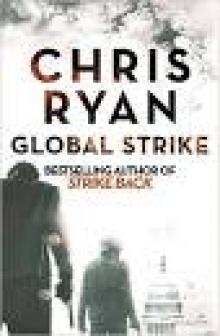 Global Strike
Global Strike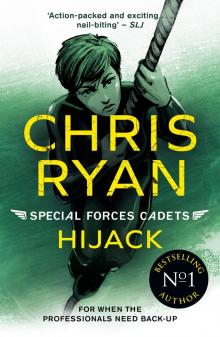 Hijack
Hijack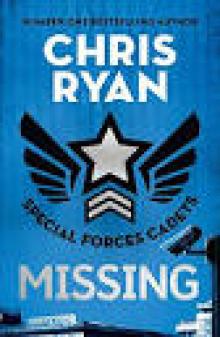 Special Forces Cadets 2
Special Forces Cadets 2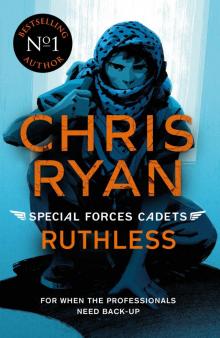 Ruthless
Ruthless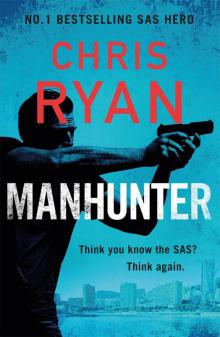 Manhunter
Manhunter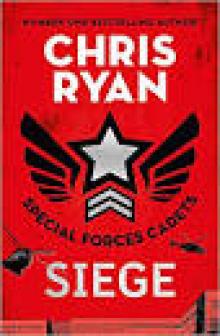 Special Forces Cadets 1
Special Forces Cadets 1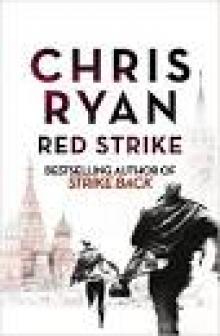 Red Strike
Red Strike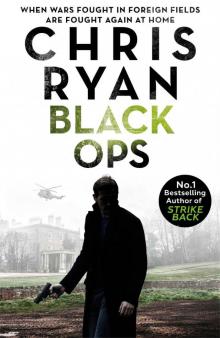 Black Ops
Black Ops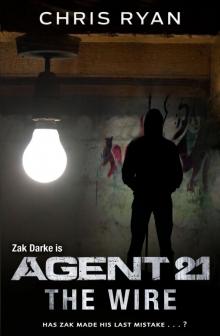 Agent 21: The Wire
Agent 21: The Wire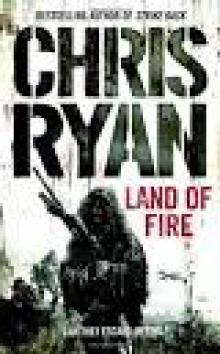 Land of Fire
Land of Fire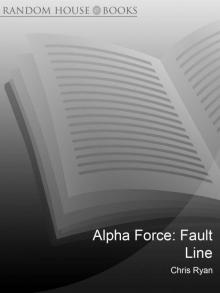 Alpha Force: Fault Line
Alpha Force: Fault Line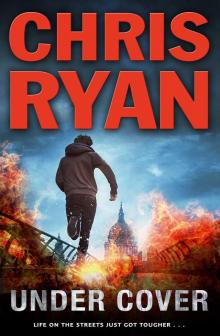 Under Cover (Agent 21)
Under Cover (Agent 21)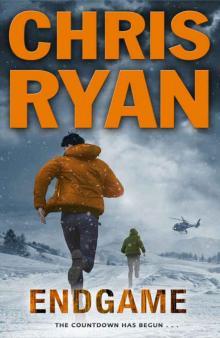 Endgame (Agent 21)
Endgame (Agent 21)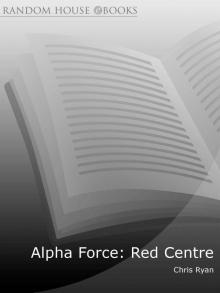 Red Centre
Red Centre Blackout
Blackout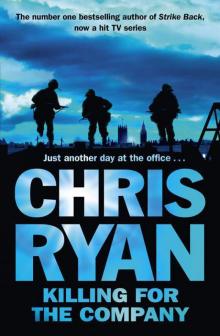 Killing for the Company
Killing for the Company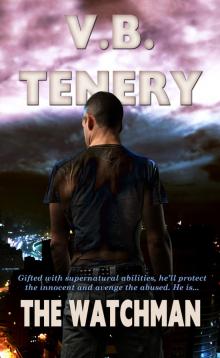 The Watchman
The Watchman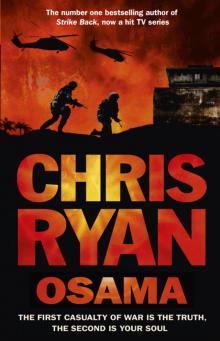 Osama
Osama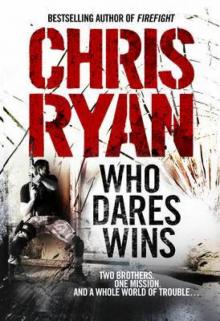 Who Dares Wins
Who Dares Wins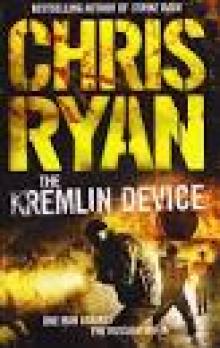 The Kremlin Device
The Kremlin Device Hunter Killer
Hunter Killer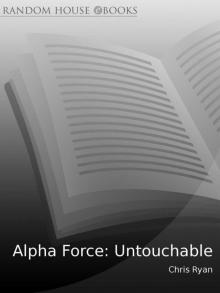 Alpha Force: Untouchable
Alpha Force: Untouchable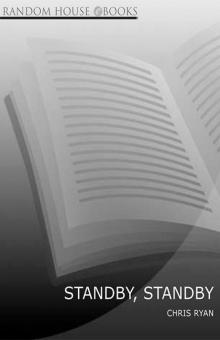 Stand By Stand By
Stand By Stand By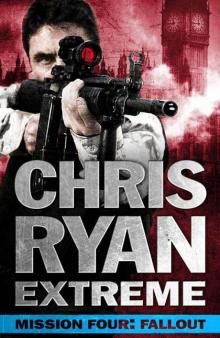 Chris Ryan Extreme: Hard Target: Mission Four: Fallout
Chris Ryan Extreme: Hard Target: Mission Four: Fallout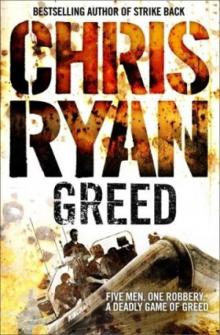 Greed mb-1
Greed mb-1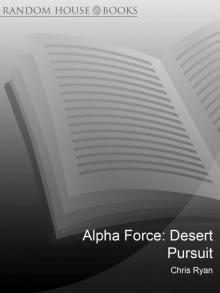 Alpha Force: Desert Pursuit
Alpha Force: Desert Pursuit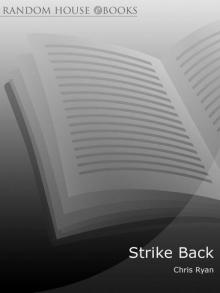 Strike Back
Strike Back Greed
Greed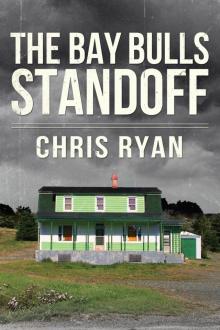 The Bay Bulls Standoff
The Bay Bulls Standoff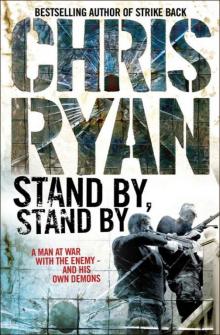 Stand By, Stand By gs-1
Stand By, Stand By gs-1 Outbreak
Outbreak Hunted
Hunted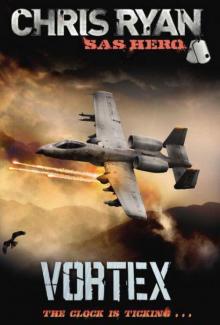 Vortex cr-4
Vortex cr-4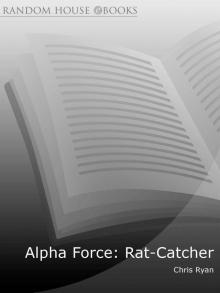 Rat-Catcher
Rat-Catcher Vortex
Vortex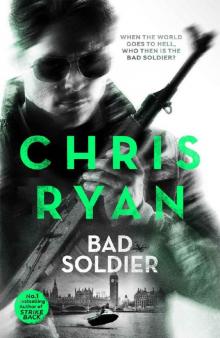 Bad Soldier
Bad Soldier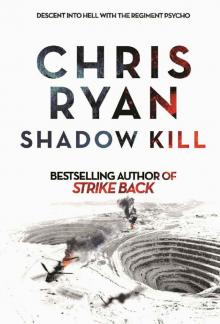 Shadow Kill: A Strikeback Novel
Shadow Kill: A Strikeback Novel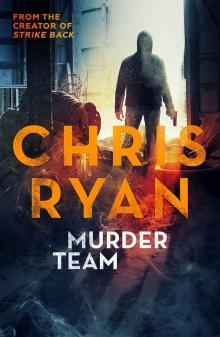 Murder Team (Kindle Single)
Murder Team (Kindle Single) One Good Turn
One Good Turn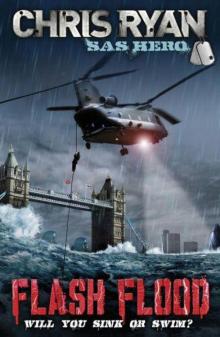 Flash Flood cr-1
Flash Flood cr-1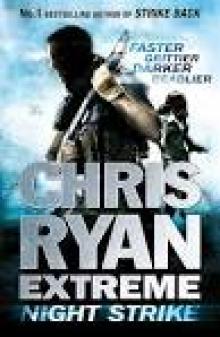 Night Strike
Night Strike Wildfire
Wildfire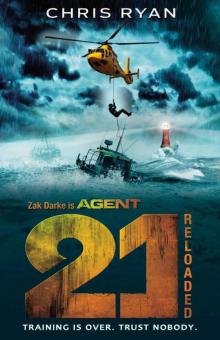 Agent 21: Reloaded: Book 2
Agent 21: Reloaded: Book 2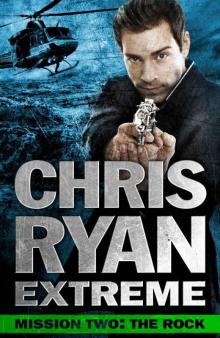 Chris Ryan Extreme: Hard Target: Mission Two: The Rock
Chris Ryan Extreme: Hard Target: Mission Two: The Rock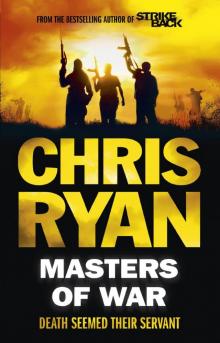 Masters of War
Masters of War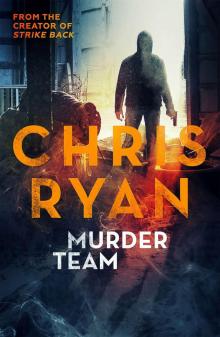 Murder Team
Murder Team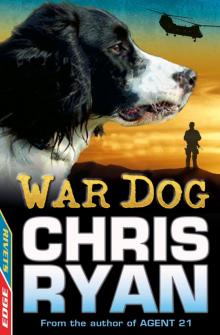 War Dog
War Dog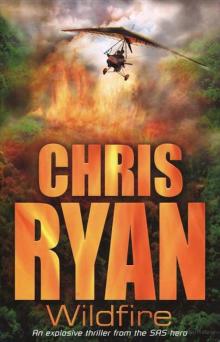 Wildfire cr-2
Wildfire cr-2 Survival
Survival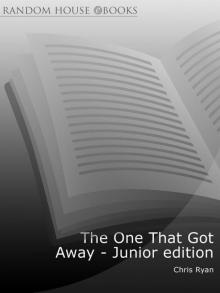 The One That Got Away - Junior edition
The One That Got Away - Junior edition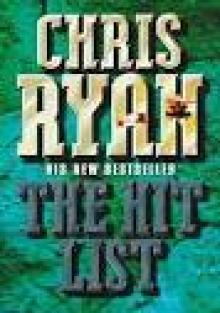 The Hit List
The Hit List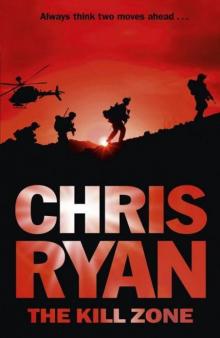 The Kill Zone
The Kill Zone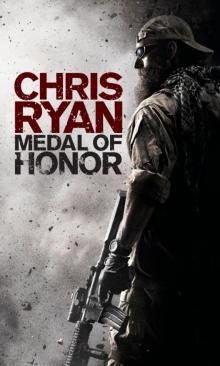 Medal of Honor
Medal of Honor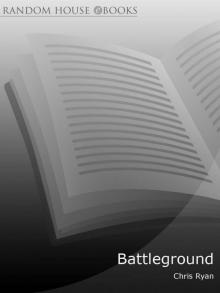 Battleground
Battleground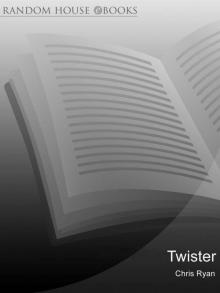 Twister
Twister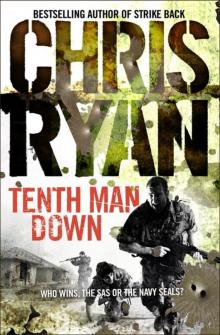 Tenth Man Down gs-4
Tenth Man Down gs-4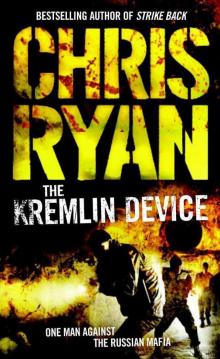 The Kremlin Device gs-3
The Kremlin Device gs-3 Hostage
Hostage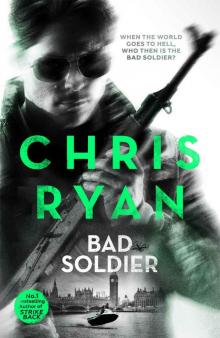 Bad Soldier: Danny Black Thriller 4
Bad Soldier: Danny Black Thriller 4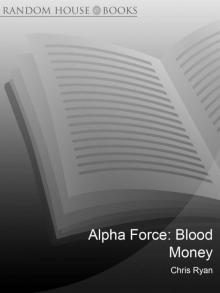 Alpha Force: Blood Money
Alpha Force: Blood Money Firefight
Firefight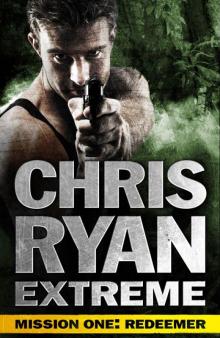 Chris Ryan Extreme: Hard Target: Mission One: Redeemer
Chris Ryan Extreme: Hard Target: Mission One: Redeemer Hit List
Hit List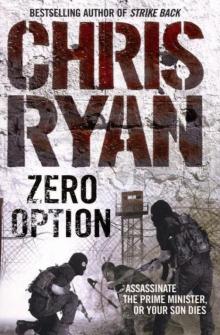 Zero Option gs-2
Zero Option gs-2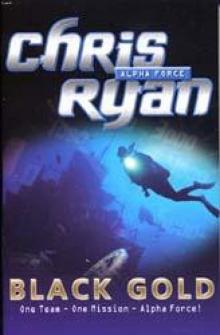 Black Gold
Black Gold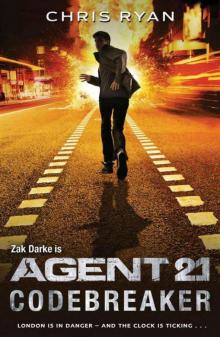 Agent 21: Codebreaker: Book 3
Agent 21: Codebreaker: Book 3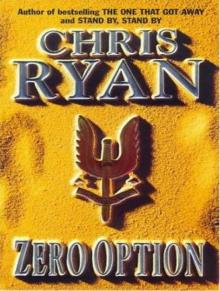 Zero Option
Zero Option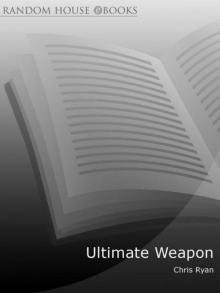 Ultimate Weapon
Ultimate Weapon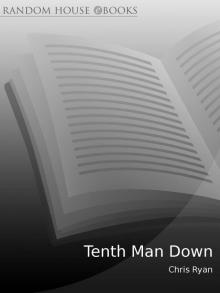 Tenth Man Down
Tenth Man Down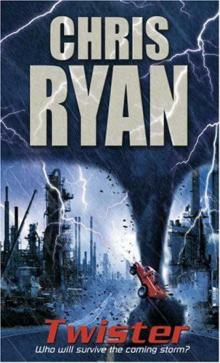 Twister cr-5
Twister cr-5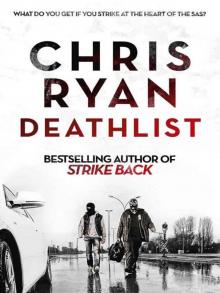 Deathlist
Deathlist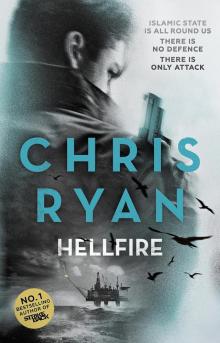 Hellfire
Hellfire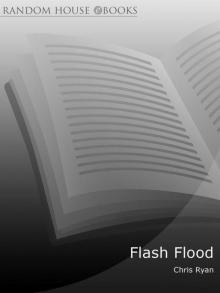 Flash Flood
Flash Flood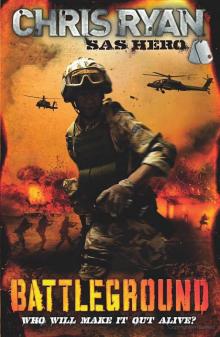 Battleground cr-6
Battleground cr-6 The Increment
The Increment